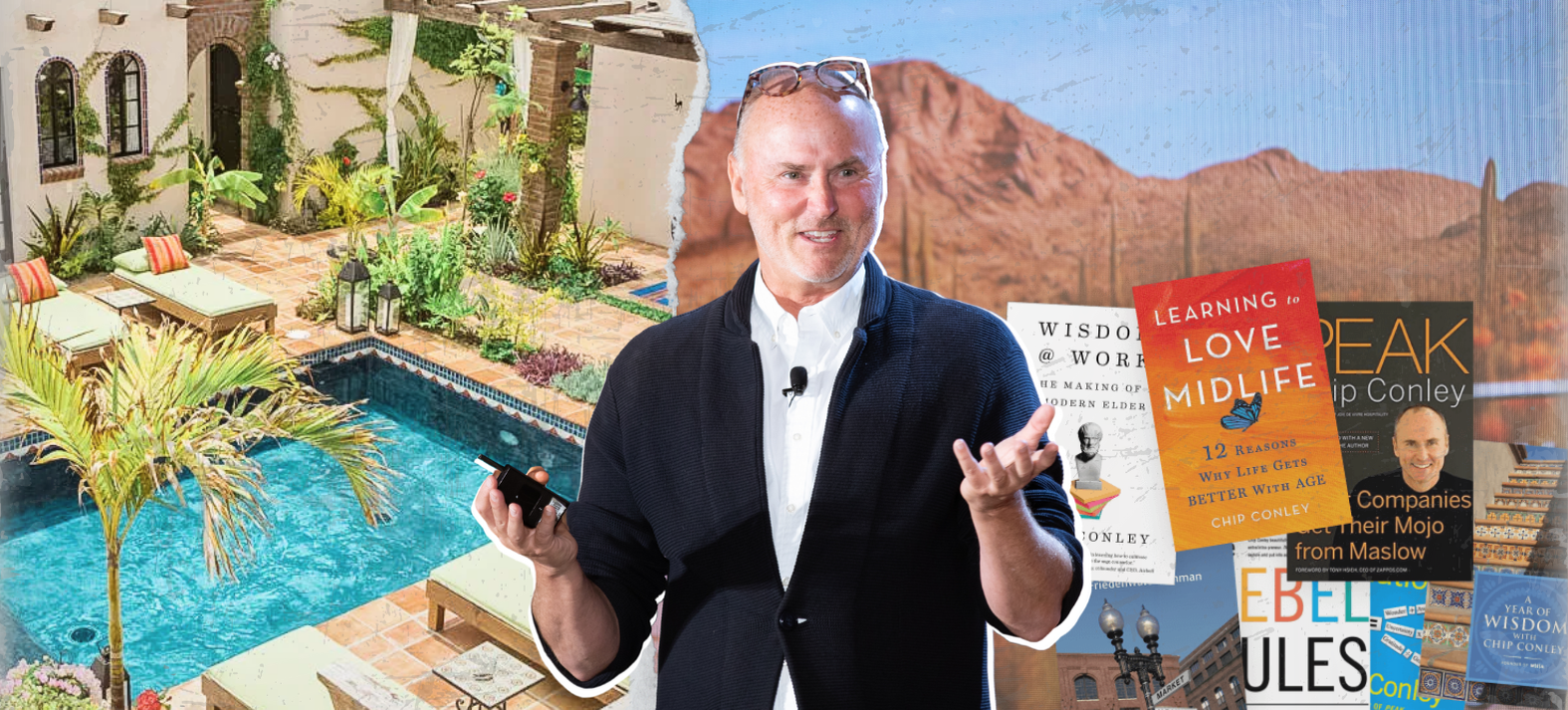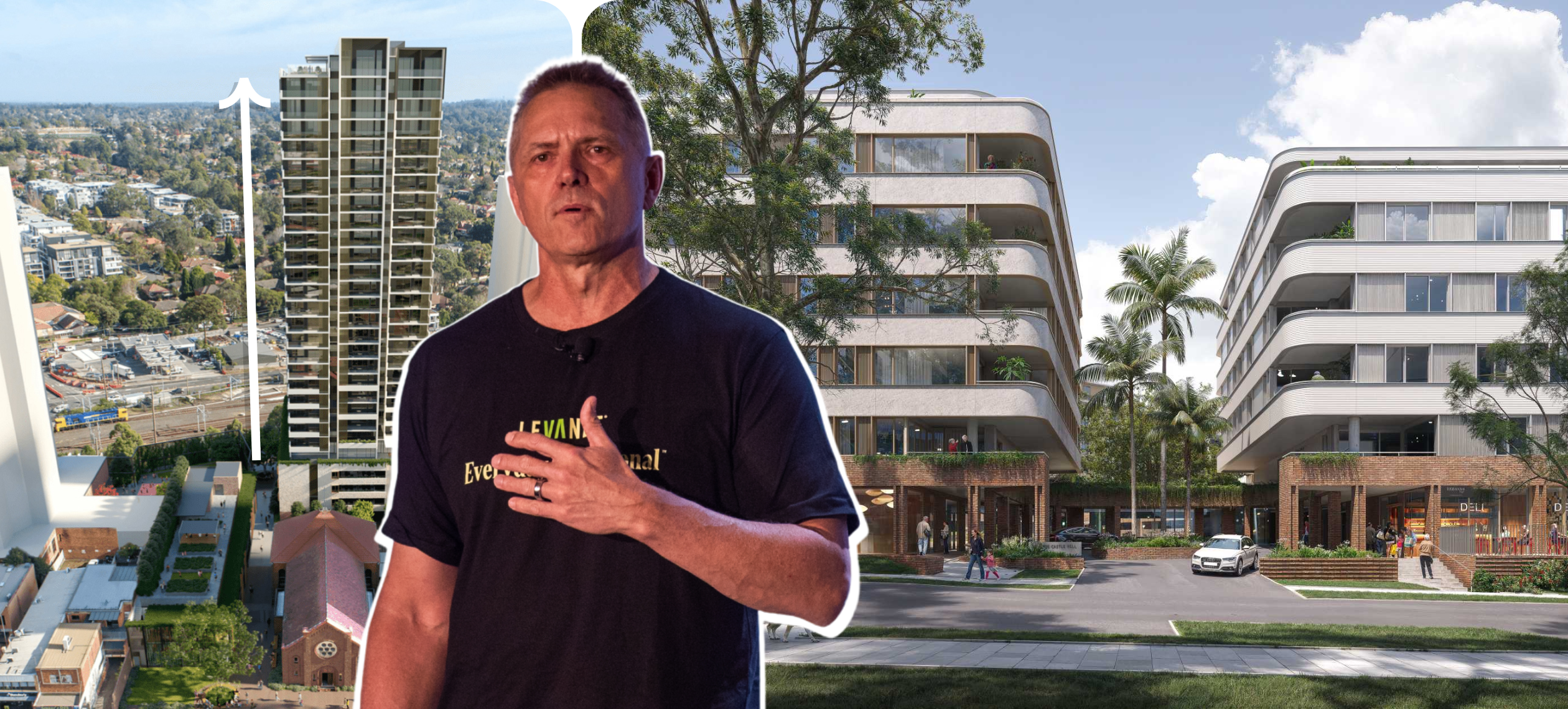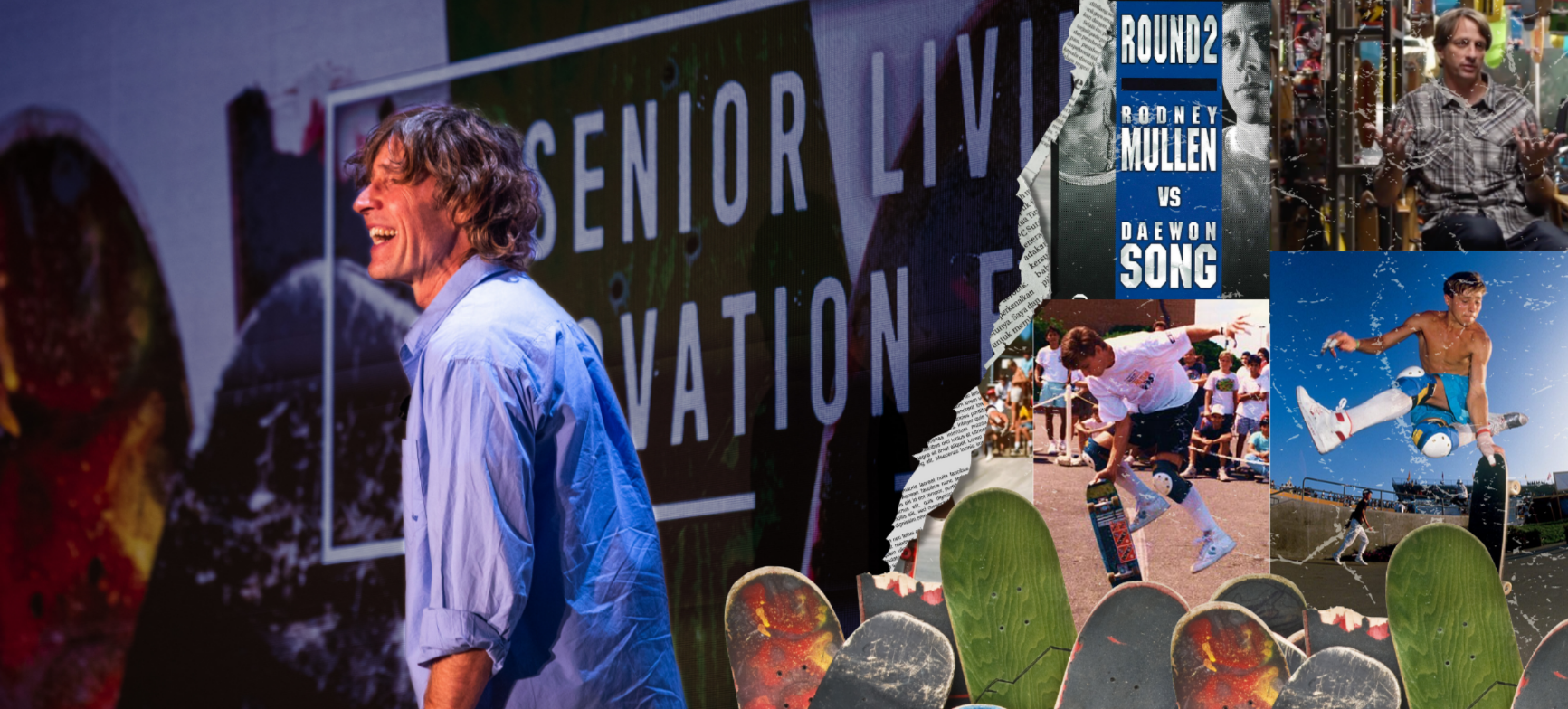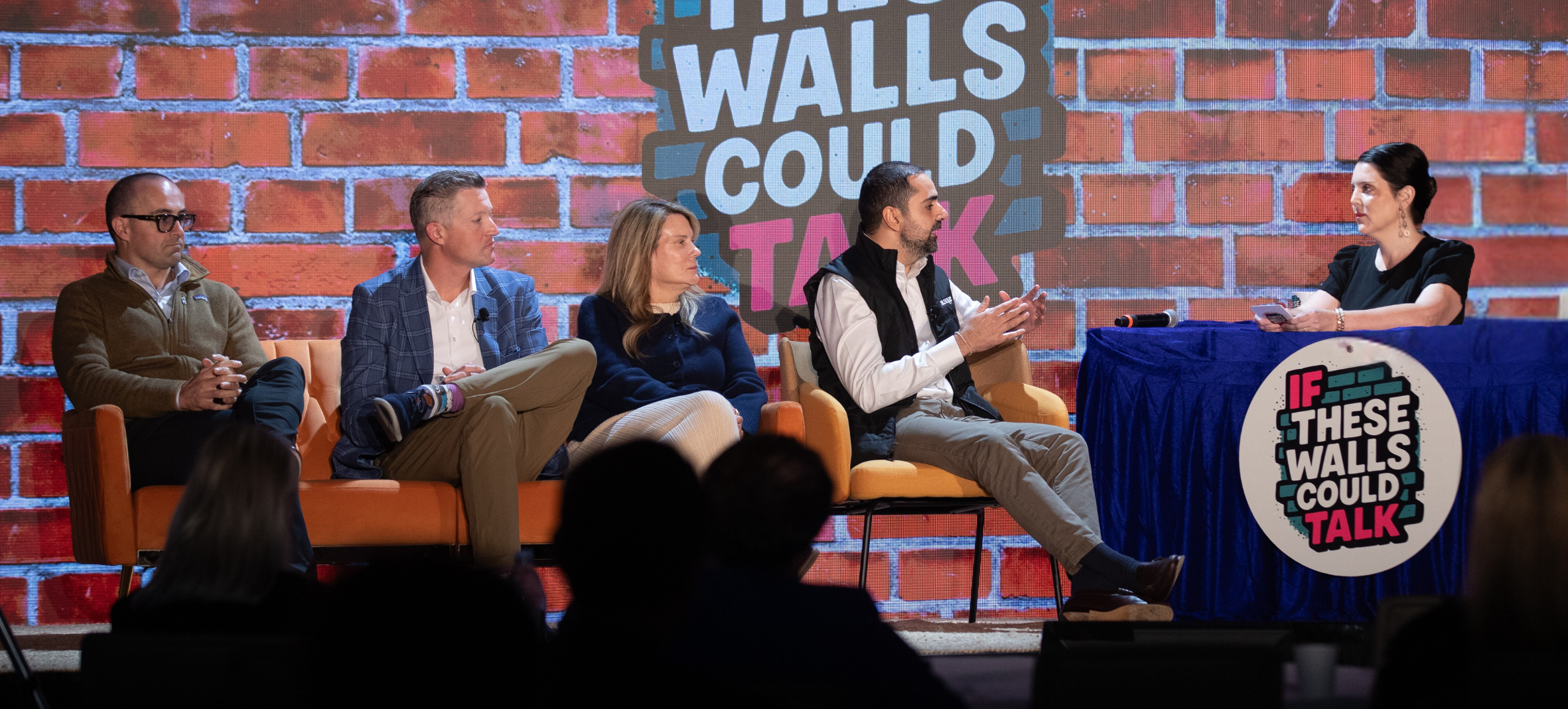The phone call came out of nowhere. Chip Conley was 52, had recently sold his boutique hotel company, and was taking time to figure out what came next. On the other end of the line: a 24-year-old named Brian Chesky with an unusual pitch. Would he like to help “democratize hospitality” at some little startup called Airbnb?
Most people might have politely declined—another tech startup with grand ambitions wasn’t exactly what Conley had in mind for his next chapter. But something about the conversation intrigued him. Maybe it was the audacity of the idea. Maybe it was his own restlessness after stepping away from the company he’d built over two decades.
At SLIF, the bestselling author and founder of Modern Elder Academy shared what he learned from that experience—and how it changed his understanding of what’s possible in later life.
The Crisis That Started Everything
Chip's transformation began with what he calls his "near-death experience"—not just the medical emergency, but the emotional and professional breakdown that came before it. Between 2008 and 2010, he lost five male friends to suicide, ages 42 to 52. His company was struggling financially during the Great Recession. Everything that could go wrong was going wrong.
"I had never heard of something called the U Curve of happiness," he told the SLIF audience, referencing research showing that life satisfaction hits its lowest point around ages 45-52—then steadily climbs with each decade after 50.
But here's the kicker: most of us never learn about that upturn.
The 7.5-Year Secret
What Chip shared next should be printed on every senior living marketing brochure. Research from Yale's Becca Levy shows that shifting your mindset on aging from negative to positive adds 7.5 years to your life. That's more than quitting smoking (4 years) and starting exercise (2 years) combined.
"If you stop smoking at 50, you get four years. If you start exercising at 50, you get two years," Chip explained. "Shifting your mindset on aging gets you more additional life than those two things combined."
Think about that. The most powerful longevity intervention isn't a supplement or surgery—it's changing how you think about getting older.
The Modern Elder Emerges
When Chip joined Airbnb at 52—twice the age of the average employee—the founders initially hired him for his knowledge. But after a month, they pulled him aside with feedback that changed his life: "We hired you for your knowledge, but what you really brought was your wisdom. You are our modern elder."
His first reaction? "Fuck you. I don't want to be your modern elder."
But then they explained: "A modern elder is someone who's as curious as they are wise."
That alchemy of curiosity and wisdom became the foundation for everything that followed. While writing his book about the Airbnb experience, Chip had what he calls a "Baja Aha"—an epiphany about creating midlife wisdom schools.
"Why don't we have a place for people to reimagine themselves?" he wondered. "I wish my five friends who had taken their own lives had had a place to reimagine their midlife atrium."
So he created Modern Elder Academy. The concept: "long life learning, not lifelong learning"—helping people understand what they're going through at age 50 and beyond. The first campus opened in Baja, Mexico. Now there's a 2,600-acre campus in Santa Fe that Time Magazine named one of the 100 greatest places to visit in the world.
The numbers speak for themselves: 7,500 graduates from 60 countries, 58 regional chapters worldwide. But the real story is in the transformation. The academy isn't just about learning—it's about creating what Chip calls "regenerative communities."
The Baja community—26 homes around a regenerative farm with an average resident age of 58—sold out in three weeks without a website or marketing. These weren't people looking for a place to retire. They were people believing their best years might still be ahead of them.
The Boutique Hotel Lesson
During Q&A, Chip was asked about applying his boutique hotel approach to senior living. His answer was brilliant.
At his hotels, Chip would imagine a magazine that represented each property's ideal guest. His first hotel was based on Rolling Stone Magazine: funky, irreverent, adventurous, cool, and young at heart. Everything—from design to service—reflected those values.
The magic? "You are where you sleep," he explained. "The people who fell in love with the hotel would use those five adjectives to describe themselves on a good day. The hotel was like an aspirational mirror for the customer."
Could senior living communities become aspirational mirrors? Absolutely. Instead of generic "luxury" or "convenience," what if communities were built around specific values and interests? Artist communities, entrepreneurial communities, adventure communities?
Breaking Age Apartheid
When asked how to change senior living's reputation, he didn't talk about amenities or buildings. He talked about fixing what his friend Marc Freedman, CEO of CoGenerate, calls "age apartheid."
"I think the more we address age apartheid, the better people will feel about senior living," he said. His ideas were specific: mentorship programs, business incubators with free office space for startups, community service projects that connect residents with younger people.
"The more we actually help to create more intergenerational connection, the better people will feel about senior living."
The Bottom Line for Senior Living
Chip's message isn't just about individual transformation—it's about industry transformation. Senior living has an unprecedented opportunity to reframe aging from decline to growth, from endings to new beginnings.
But it requires a fundamental shift: from seeing residents as people managing decline to seeing them as people in their element. From providing care to providing platforms for continued growth.
As Chip put it in his closing: "Wisdom is not something that just philosophers or Yoda have. We all have wisdom. The question is, how do we first identify it? And then how do we share it?"
The senior living industry sits at the intersection of that question. The communities that figure out how to help residents not just identify but share their wisdom—with each other, with younger generations, with the broader community—won't just be serving the age wave.
They'll be leading it.
Watch Chip Conley’s full talk below…

Posted by
SLIF heads to Carlsbad!
The One of a Kind Retreat for Senior Housing Leaders.
May 31 - June 2, 2026 | Carlsbad, CA
Learn More









Comments